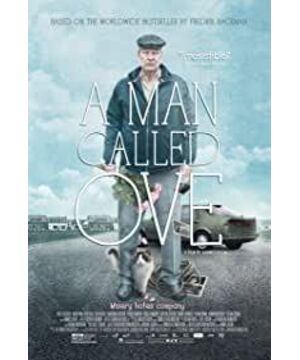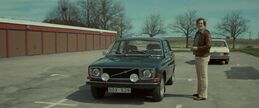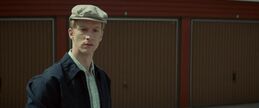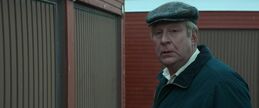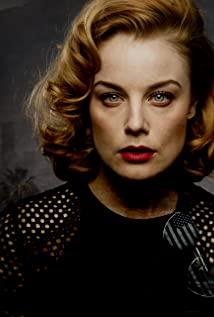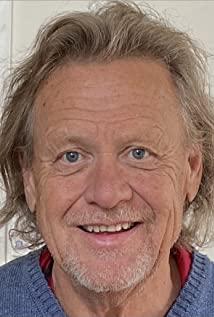The first point is to have your own principles. What makes me love is his car battle with Rune, Ove only buys Saab and Rune only buys Volvo, they are divided over their chosen car brands, from youth to cold war to old age. Finally one day, Ove said oh well, we've been in a cold war for so long, let's make up! Rune said okay, let's go for a ride in the BMW. Ove, the person who didn't buy a non-Swedish car, slapped his face and left. In fact, I have always been the kind of soft-tempered person who has relatively little bottom line and ideas of my own. Sometimes I wonder if my ideas will affect others, if I reject others, will people not like me. Now I feel that in some ways, the territorial awareness needs to be stronger. If others are not very close to you, there is nothing to be ashamed of rejecting. If they are concerned about intimacy, it doesn't matter even if Ove is in a cold war, because they understand your insistence. And in my opinion, the Cold War between Rune and Ove was just another form of intimacy, and Ove fought to keep Rune out of a nursing home in the end, and their friendship was touching.
Then he was very kind and cared about others around the corner. Although he kept calling people idiots, he finally accepted his neighbor's family, and taught an Iranian woman to drive, a gay boy, and a ragdoll cat. This ragdoll cat is not allowed to eat other messy things, and is fed two cans of salmon a day. Ove is a man who is not very good at expressing feelings and not very good at communicating. His mother died early, leaving him and his father. His father is also not very good at communicating and expressing his feelings. The time when he expressed his most intense feelings in the play was when he got his son's report card, and it was at that time that he neglected to watch the road and was killed by a train. . The director's portrayal of Ove's character traits is highlighted by the contrast between his daily performance and his acceptance of these people, and the second is from his wife putting his hand on his belly and treating him to him. Say, look, the child is moving this thing. At the time, Ove's reaction was a little stunned, and then he got up from his seat, went to the toilet, took out his handkerchief, and started wiping the corners of his eyes. Just then, another car accident happened. In the first car accident, he lost his father; in the second car accident, he lost his children and his wife's legs.
Ove is pitiful. When Ove wanted to help Rune out of the nursing home, he called a neighbor's house, and as he did after his wife's crash, he couldn't get feedback, so he sat down and complained. At this time, the Iranian woman Parvaneh said
No one can do it all alone, including you.
I think this sentence is very correct. If a man named Ove wants to die, it must be because there is nothing in the world worth his affection. My friend asked me today, "Well, if you were about to die, what would you most like to eat?" I like eating hawthorn very much recently, so I said, "Well, it should be hawthorn, and then I was eating it. In the middle of the day, I will think, if I can eat it tomorrow, I will try my best to live to eat one more piece!" And Ove is nostalgic for his wife. His wife rescued him from the shadows of his father's death, job loss, and house damage, and her red shoes symbolize her character—always passionate and hopeful, instilling hope in Ove's bleak blue. After his wife died, Ove felt that there was no hope in life, and he decided to go with his wife. At this time, the second smear of red appeared. The little vest in Parvaneh has always been red. Since her, more and more people have entered Ove's life, and there are more and more things he cares about and things he loves. He found another pillar to support him in his life without his wife.
I haven't read the book, but I think the movie adaptation is very good. From the structure of the film, first of all, the film tells several stories. The sequence of these stories is based on the death of Ove's wife, interspersed with his and his father, his and his friends, and his and his wife's stories. The stories interspersed in the middle are not obtrusive, firstly because the events in the interlude are related to events in daily life, and this technique has been mentioned in many movies and novels that use the interlude, and the second is because there is some kind of interlude between these stories. connect. In his father's story, Saab is the first topic of conversation between him and his father. His father told him that Saab is the best car in the world, so he also drives Saab for life, which is a kind of inheritance. And this story of his father also implies that after the neighbors moved in, he already had something to love and he would not die. His father died while lying on the tracks, and he was about to kill himself when he jumped off the platform to save the man lying on the tracks. But no, because he saw his own face when he was young on the platform. His father died unexpectedly, and he has a choice. Is this young self really his childhood memory? I don't think so, because when his father died, he was already a young man. This young Ove should be referring to his neighbors. His relationship with the neighbor's family is like a father and a young him. It is a relationship of mutual dependence. By seeing his face, Ove empathizes with this feeling, so he climbs the platform. The second is the story of him and his friends. I think there is a connection between this story and the story of the gay brother. In the friend's story, the audience thinks it's weird for him to fight with his friends because of the different brand of the car, so the audience feels weird and in the story of the little brother, Ove thinks it's weird that others think that someone has a different sexuality than himself and then acted aggressively. In fact, it is the same, the director created a second empathy. In his wife's story, from the perspective of color, it has a connection with the main story, and from the time when he also suffered a car accident, it has a certain connection with Ove's father's car accident, which shows the misery of Ove. What's more, after the death of Ove's father, a girl in red shoes - his wife saved Ove, and after his wife died, it was the little girl in the red vest - his neighbor who saved Ove. dimension, and they became a father-daughter relationship. These interspersed stories take the car as a clue, and there is empathy and repetition between each other, so that the theme of the article is more cohesive and the whole story is more complete.
Ove looked like my grandfather, old and stubborn, with a bad temper and unwilling to accept new things. Parvaneh persuades Ove to put away his wife's belongings and look forward. Ove, however, would not let anyone mention his wife, because he wanted that memory to be kept alone. I think that Grandpa's stubbornness should also be because the past is too beautiful, and the way to make him no longer stubborn should be to let him realize that he is needed and loved. The memory of the past should not be sealed. The beauty of the past lies in the beauty of his own youth and the hazy beauty across the river of time, while the beauty of the future that can lead Ove to look forward lies in love and new life.
View more about A Man Called Ove reviews


